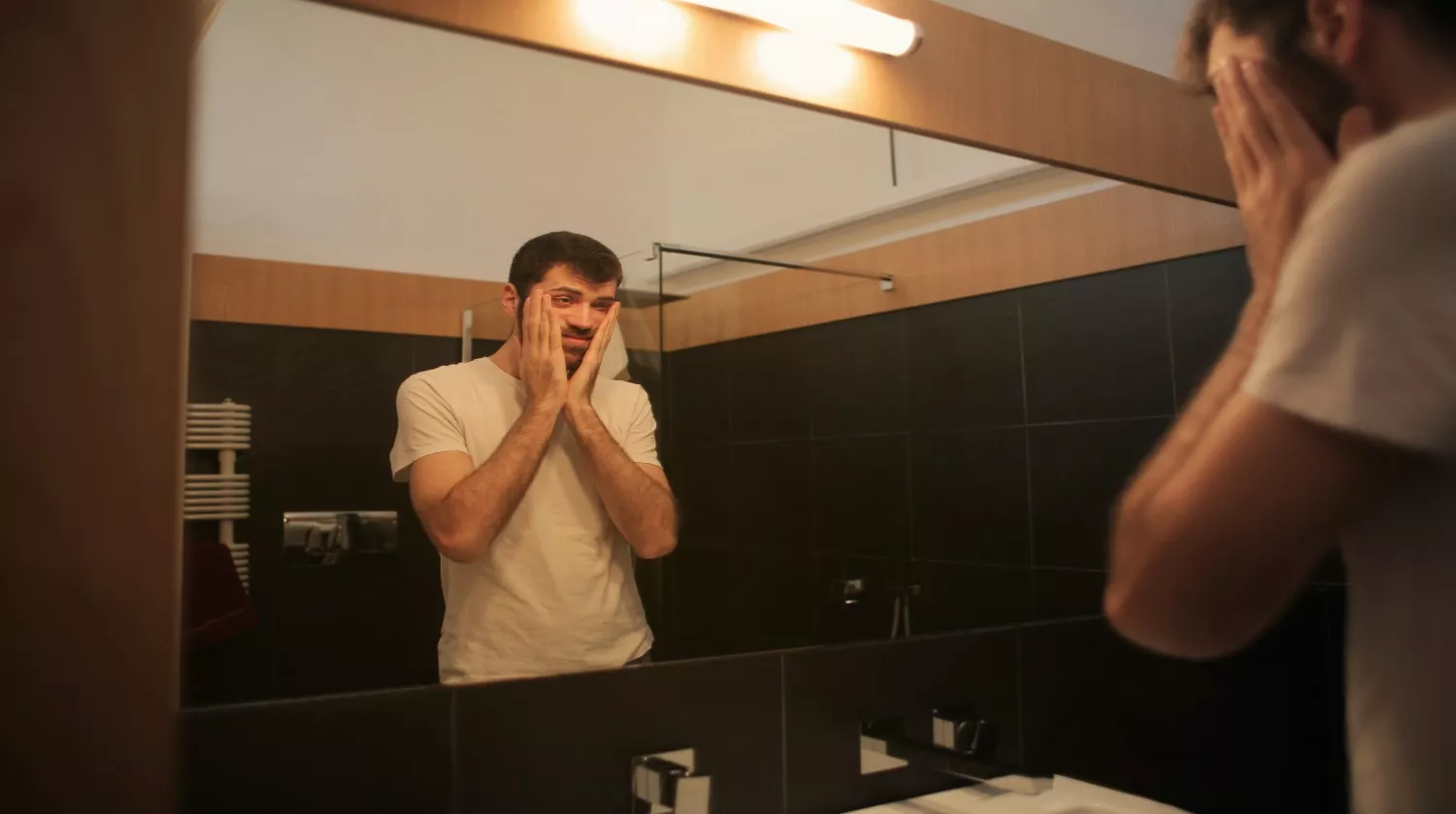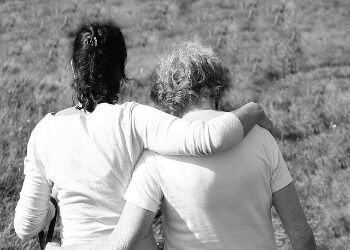How Connection and Addiction Are Related

Panelists: Greg Powers, MSSW, LCSWS: Clinical Director of Discovery Point Retreat
Noelle Carmen: Host of Recovery Out Loud
Connection and Addiction: How They’re Related
Addiction is a disease of loneliness, shame, and an inability to create and maintain healthy relationships. Today we are joined by Noelle Carmen, host of Recovery Out Loud, and Clinical Director of Discovery Point Retreat, Greg Powers MSSW, LCSWS.
We’re talking about the connection between relationships, attachment style, and addiction. Greg guides us through two types of attachment styles, how to change our behaviors for the better, and getting professional help to make it happen.
How Does Attachment Develop in Our Formative Years?

Our attachment style develops in our formative years, between birth and eight years old. Typically this begins with our parents, relatives, and family friends. When there is trauma in childhood- whether that’s sexual abuse, emotional manipulation, physical abuse, or violence to family members- we become disengaged, detached, and enter survival mode.
We learn relationships are not safe, and continue viewing relationships in this light as we grow. Greg illuminates,
“Attachment is how a person views relationships and closeness. We develop that early on. If a child develops a healthy attachment they’re more likely to consider relationships safe, reliable, and important. This is how we develop security and confidence, and how we view and explore the world. This can present in a spectrum.”
What Is Avoidant Attachment?
Greg defines avoidant attachment as “There’s a dismissive and a fearful aspect of avoidant attachment. You feel you don’t need contact, but you still expect it. Then you’re fearful if you are considered to be ‘too needy.’ We don’t like to be vulnerable, so we retract- and this is avoidance of contact.”
What About Shame in Needing Somebody?
The perception of weakness and strength — especially in the context of addiction — is largely stigmatized in our society. We are taught if we need help that we are “weak” and unable to solve our own problems.

But here’s the rub: we need people to help us get better. Having healthy relationships gives us a support system, a non-critical eye of our accomplishments, and insight into behaviors we may dismiss. Greg illuminates,
“We want to be strong and independent, and be that person who everybody comes to. The problem with that is we can’t always be that to everybody all the time. We get to the point where we need to ask for help and become less independent. We have an internal struggle in that we don’t want to be vulnerable, and have other people that think we’re weak.
“It’s that vulnerability that comes around and says ‘we’re less than something.’ That’s not the case. In order for us to grow we have to have some of that vulnerability. We have to be less stoic.
“It’s hard for us to allow people in to see our vulnerabilities. Those in active addiction are immersed in trying to fit in with their social circles and remain close to the top, where there is a false perception the more “tight lipped” you are, the better you’re doing— as opposed to those who are ‘weak’ and emotional.”
In order to overcome the underlying reasons we have trouble connecting with others, we have to be entirely honest of ourselves, and face the feelings and past events we’re running from. There is no illumination into self without being honest — and we are largely unequipped to do the work necessary for this type of transformation.
That’s when you need to ask for help the most.
What Happened in Our Youth that Creates Our Attachment Style?

Our formative relationships develop our attachment style, for better or worse.
Greg weighs in, “A lot of it comes from getting the message of ‘don’t cry, brush it off’ especially with boys: ‘man up.’ This conditions us not to be vulnerable — that these feelings aren’t safe. We get the message that says, ‘you need to be stronger than everything around you.’ Women also fall into this.”
“How are you going to learn if you don’t ask? You’re not just supposed to know. That doesn’t work. It’s everything we hear from our parents and society. If you are vulnerable and need assistance, it’s a problem.”
Anxious Attachment Style
Greg defines anxious attachment style:
“We’re talking about insecure attachment. You are more likely to have fear of intimacy and are more likely to have insecure attachment style when you are using addictive substances. You are more likely to head towards those substances [as a security blanket.] There’s a lot of evidence out there that says when we’re not secure in our attachment to others — for a myriad of reasons. We’re looking for security in any way shape or form. This can manifest as a string of [toxic] relationships.”

Anxious attachment style keeps us in active addiction. We are too anxious to reach out for meaningful connection and get stuck in the cycle of abuse. Someone suffering from anxious attachment is typically hyper-aware of perceived rejection, receding further into themselves.
Thankfully, with the right guidance and professional care, attachment styles can be unlearned and replaced with healthy attachment styles. We know we’re healthy when we’re able to create and maintain healthy relationships that support us.
Humans Are Built for Connection
Greg confirms our hope of changing attachment styles for the better, “Our attachments change, we don’t have the same relationships we’ve had,” and that gives us room for growth. Lack of connection foments self-medication to “find something that makes [substance users] feel better about themselves,” says Greg.
With professional help Greg reassures us that our attachment styles can change. He explains,
“I’ve seen [attachment styles] change adversely and positively as well. When we begin to deal with our addictions we must ask ‘What has my life been like?’ The friends you think are friends aren’t really friends. We’re starting to go back out into society — what’s it like to go to a football game and not drink?”

Eventually we realize we’ve been self-medicating to attend events, spend time with friends, attend children’s parties, and other social situations. When we stop self-medicating and our social interactions are “suddenly” genuine, and you’re aware of what’s going on, it can be scary.
Remember, there’s nothing wrong with asking for help, keeping to your personal boundaries, and understanding change happens slowly. Do not rush yourself. Do not expect anything from yourself. Learn to simply, be — without drugs and alcohol.
Greg explains, “We can get back to what is perceived as normal, and find healthy attachments. Not only in interaction, but healthy for us, because it strengthens us and builds confidence.”
What About the Connection to Self?
Addiction is largely a disconnection of self. When we’re under the influence of substances we forget who we are authentically, and disconnect from our bodies and thoughts. This disconnection allows us to accept things that are unhealthy and damaging to your physical and emotional health.
Greg says, “I have told countless people, if you aren’t in a good place with yourself, you’re not going to be good in a relationship with anyone else. It starts with you. You’re going to have uncomfortable moments with yourself, and you need to be honest so you can get into a safe place where you can be with somewhere else. If you’re not happy with you, it’s going to come across through all of your relationships,” whether they are romantic or not.
What Do You Want to Say to Our Listeners?
Hesitation to get help is normal.

In closing, Greg would like listeners to remember:
“Recovery is worth the effort, and it’s worth being vulnerable in that moment and admitting you need help. Be open to what you receive on the other end of that. It’s one of the scariest moments you’ll ever experience, but also the most rewarding that you’ll never forget. Coming out from the other side is nothing short of miraculous.”
Take the time to admit you need help and that you can’t do this by yourself. Allow yourself to explore the possibilities of what can be. We are here to answer your questions 24 hours a day, seven days a week.
Make the call. We’re listening.
855-306-8054

